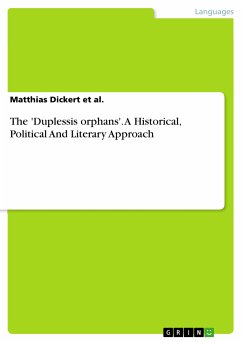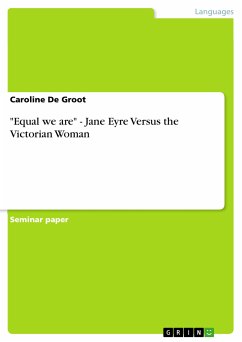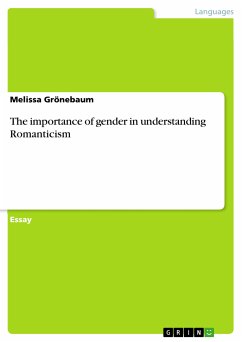Document from the year 2015 in the subject Didactics for the subject English - Literature, Works, University of Marburg, language: English, abstract: The manifold topics related to what is commonly known as the catchphrase ‘Duplessis orphans’ have shocked (and still do shock) many Canadians. Fact is that scientists of different research fields talk about a dark spot of contemporary Canadian history, which until today has left many questions unanswered. To tackle the subject of physical, mental and sexual abuse, along with students, at a German modern secondary school and to present the finding at university first seemed to be a difficult task to master. However, the present discussion of sexual abuse of children and teenagers in church-run institutions in Ireland or Germany hint at the importance of this matter. German students have already encountered this problem in connection with Australia, where ‘The Stolen Generation’ is a matter in form 9. In order to give an objective (but critical) reflection of this topic, an interdisciplinary approach seems advisable, since we regard a problem which originates in many different backgrounds. Students can thus use historical, sociological, religious and psychological information to better understand the practice of child abuse in the widest sense. The topic is also close to the students’ own life experience, and an in-depth analysis of the Canadian example enables them to work on a specific example with the possibility to better understand this complex matter. The Canadian background which geographically centers around the Quebec area also teaches them a lot about Canada and helps them see how closely related the Duplessis orphans are to Canada’s past and present. The shocking fact that child abuse has been tolerated for such a long time also shows that Canada – like all former colonies of France and Great Britain – has been a victim of colonization that exercised the so-called ‘four Cs’ (conquest, civilization, commerce and, above all, Christianity) to deal with their colonies.
Bitte wählen Sie Ihr Anliegen aus.
Rechnungen
Retourenschein anfordern
Bestellstatus
Storno









